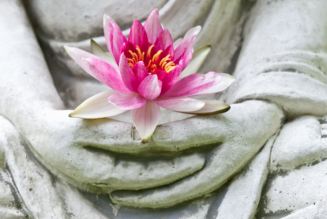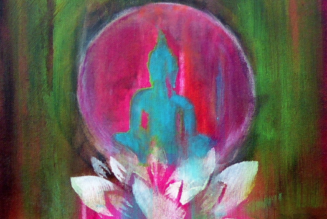The Benefits Of Meditation
It seems that research centered around the benefits of meditation have now been rolling in steadily validating the ancient wisdom common to both Ayurveda and Yoga. Ayurveda is an ancient science which literally means ‘the science of life’. A basic fundamental premise to both Ayurveda and Yoga is that – both a sound mind and sound body are integral to one’s overall health and well-being.
“Meditation is mind without agitation.”
– Narasimhan
Just Some Of The Potential Benefits Of Meditation:
– greater clarity and inner calmness
– increased creativity and happiness
– improved sense of emotional stability
– reduced level of anxiety and depression
– improved brain function and memory
– reduced level of stress
… the list can go on and on …
Interesting Video ~ The Scientific Power Of Meditation!
Overcoming The 5 Most Common
Struggles With Meditation:
1. “I can’t stop thinking.”
When people first begin to meditate, they often have the misunderstanding that one is not suppose to have any thoughts [while meditating]. Due to this false belief there is commonly a notion that one is doing something “wrong”. Unfortunately, it is this very act of judgement which can result in one meditating less.
Instead …
Consider meditation an act of simply observing your thoughts as they arise and allowing them to flow without fully attaching and identifying to them.
2. “It’s impossible for me to sit still.”
One of the initial challenges of meditation is simply remaining still. Whether this stillness is of the body or stillness of the mind – many people find this to be a great challenge.
Instead …
Simply consider focusing on the breath. Whether this focus on the breath is for one hour, one minute or even a few seconds – this focus on the breath will help to create a sense of being centered and will naturally create its own stillness.
3. “I fall asleep soon after I close my eyes.”
It is no surprise that many of us are overworked and sleep-deprived. Likewise, as the body begins to sense a level of relaxation – it naturally wants to further enter into a deep level of relaxation [i.e. sleep].
Instead …
If you do need sleep – by all means, sleep. However, as you continue a regular practice of meditation you will likely develop a greater sense of overall well-being including more profound sound sleep at night. As the quality of sleep improves at night this will provide for greater awareness during the day – which will allow you to meditate with a level of passive alertness without the tendency to falling asleep during meditation.
4. “I just don’t have time to meditate.”
Unfortunately, this may not only be the most common struggle but rather the most common ‘excuse’ not to meditate. Recently, I saw a clever post online which said, “if you have time for FB, you have time to meditate”. Taking into consideration that there are nearly 2 billion people on FB – there are 2 billion people who have time to meditate.
Instead …
Consider setting up an alarm for the time you have carved out to meditate, or physically write it in your day planner; usually early morning or the evening. Also, instead of setting aside a large span of time to meditate – begin with just a few minutes dedicated to sitting quietly to meditate and do your level best to stick to this routine. Soon, after you begin to realize the actual benefits of meditation, the time you dedicate for meditation will increase exponentially!
5. “I don’t want to sit around and ‘do nothing’”
One of the most ‘real’ challenges in our ever increasingly fast-paced society is the concept of doing more and more and it would only seem counter-productive to ‘do nothing’.
Instead …
Consider the act of sitting quiety and ‘doing nothing’ as a way of gaining new perspectives and insight which ultimately creates clarity of the mind. Likewise, as mentioned above, meditation has been shown to improve brain function and memory which will help to approach the ‘to-do list’ more effectively.
Parting Comment:
Make sure to bring that sense of peace and calmness from your daily meditation into your daily activies. Dr. Andrew Weil nicely explains … “Remember the breath while walking – as with any meditation technique – should not be pursued with a grim determination to ‘get it right’. The point is to cultivate openness, relaxation and awareness, which can include awarness of your undisciplined, wandering mind.” – Dr. Andrew Weil



![Female Health: Amenorrhea [cessation of menses] – An Ayurvedic Perspective](https://healthyayurveda.com/wp-content/uploads/2015/07/1.-Amenorhea--327x219.png)




